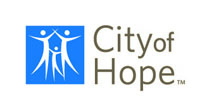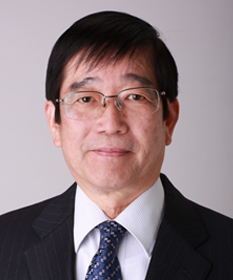This article contains content that is written like an advertisement .(May 2021) |
The Eppley Institute for Research in Cancer and Allied Diseases is a research institute at the University of Nebraska Medical Center in Omaha, Nebraska, United States.
This article contains content that is written like an advertisement .(May 2021) |
The Eppley Institute for Research in Cancer and Allied Diseases is a research institute at the University of Nebraska Medical Center in Omaha, Nebraska, United States.
Originally built with a grant from the Eugene C. Eppley Foundation, the Institute was founded in 1960 with support from the National Institutes of Health and the University of Nebraska Medical Center (UNMC). It was dedicated in 1963. Dr. Henry M. Lemon was the first director. In 1968, Dr. Philippe Shubik's research group moved to UNMC from the Chicago Medical School to continue their focus on the study of chemical carcinogenesis. The Eppley Institute became an independent research institute in 1972 with an act from the Nebraska Legislature. [1] In 1973 the Institute grew by 30,000 feet with the addition of the Eppley Hall of Science, which was funded by the Eppley Foundation and the National Cancer Institute.[ citation needed ]
The American Cancer Society awarded the Eppley Institute a "Special Institutional Grant in Cancer Cause and Prevention" in 1988. This award is one of only seven such awards in the nation. [2]
The Eppley Institute's stated mission is to "Develop superior research programs that will provide a better understanding of the causes of cancer, improve the methods for diagnosis of cancer and improve the methods for the treatment and prevention of cancer and similar disorders". [3]
The Eppley Institute is part of the University of Nebraska Medical Center and The Nebraska Medical Center. It has access to 734 beds and handles 22,000 inpatient admissions yearly for approximately 3,600 new cancer patients annually.[ citation needed ] 164 Cancer Center members, including 61 practicing physicians, are involved in basic, clinical, and population-based research and are awarded approximately $20 million in peer-reviewed research grants annually. [4]
Eppley is recognized for its treatments of hematological malignancies, particularly lymphomas and leukemia. Its basic research programs include chemical carcinogenesis; molecular, cellular, and structural biology; and translational research in novel therapies. It is known for its work in the study of lymphoma,[ citation needed ] and Eppley's notability in the field of transplantation began with bone marrow transplantation in 1983. [4]
The Cancer Research Doctoral Program at UNMC, funded by the National Cancer Institute T32 Cancer Biology Training Program, includes faculty who have primary appointments at the Eppley Institute. [5]

The University of Nebraska system is the public university system of the U.S. state of Nebraska. Founded in 1869 with one campus in Lincoln, the system has four university campuses, a two-year technical agriculture college, and a high school.
The National Heart, Lung, and Blood Institute (NHLBI) is the third largest Institute of the National Institutes of Health, located in Bethesda, Maryland, United States. It is tasked with allocating about $3.6 billion in FY 2020 in tax revenue to advancing the understanding of the following issues: development and progression of disease, diagnosis of disease, treatment of disease, disease prevention, reduction of health care disparities within the American population, and advancing the effectiveness of the US medical system. NHLBI's Director is Gary H. Gibbons (2012–present).
The Masonic Cancer Center, University of Minnesota (MCC) is a National Cancer Institute designated comprehensive cancer center. It is part of the University of Minnesota in Minneapolis.
The American Association for Cancer Research (AACR) is the world's oldest and largest professional association related to cancer research. Based in Philadelphia, the AACR focuses on all aspects of cancer research, including basic, clinical, and translational research into the etiology, prevention, diagnosis, and treatment of cancer. Founded in 1907 by 11 physicians and scientists, the organization now has more than 52,000 members in 130 countries and territories. The mission of the AACR is to prevent and cure cancer through research, education, communication, collaboration, science policy and advocacy, and funding for cancer research.

The University of Nebraska Medical Center (UNMC) is a public academic health science center in Omaha, Nebraska. Founded in 1869 and chartered as a private medical college in 1881, UNMC became part of the University of Nebraska System in 1902. Rapidly expanding in the early 20th century, the university founded a hospital, dental college, pharmacy college, college of nursing, and college of medicine. It later added colleges of public health and allied health professions. One of Omaha's top employers, UNMC has an annual budget of $841.6 million for 2020 to 2021, and an economic impact of $4.8 billion.
Philippe Shubik was a British born American cancer researcher who founded the organization the Toxicology Forum, which facilitates international discussions on toxicology-related topics. He was also Director of the Eppley Institute for Research in Cancer and Allied Diseases.
The Eugene C. Eppley Foundation was founded in Omaha, Nebraska. Founded by Omaha hotel magnate Eugene C. Eppley, the foundation was the leading benefactor for several charities and institutions in the Midwestern United States.

City of Hope is a private, non-profit clinical research center, hospital and graduate school located in Duarte, California, United States. The center's main campus resides on 110 acres (45 ha) of land adjacent to the boundaries of Duarte and Irwindale, with a network of clinical practice locations throughout Southern California, satellite offices in Monrovia and Irwindale, and regional fundraising offices throughout the United States.
James Linder is an American author, academic and businessperson, as well as an authority on university research commercialization. He serves as chief executive officer (CEO) of Nebraska Medicine, and most recently was president of the University Technology Development Corporation and chief strategist for the University of Nebraska system. He is also a professor of pathology and microbiology at the University of Nebraska Medical Center.

Tsutomu Tomioka is a Japanese doctor and politician serving in the House of Representatives in the Diet as a member of the Liberal Democratic Party. A native of Nakama, Fukuoka he attended Nagasaki University, earning a doctoral degree in medicine. He also attended The Eppley Institute for Research in Cancer at the University of Nebraska Medical Center in Omaha, Nebraska for two years. He was elected for the first time in 2005 after serving in the local assembly of Nagasaki Prefecture from 1999 to 2003. He is also a member of Médecins Sans Frontières, among other organizations.

The McArdle Laboratory for Cancer Research is a basic cancer research facility located on the University of Wisconsin–Madison campus in Madison, Wisconsin. It houses the university's Department of Oncology. The staff of the McArdle Laboratory numbers approximately 200. Twenty-eight faculty members lead research groups focused on various fields such as cancer virology, signal transduction, cell cycle, cancer genetics, and carcinogenesis.
Nebraska Medicine, is a private not-for-profit American healthcare company based in Omaha, Nebraska. The company was created as Nebraska Health System (NHS) in 1997, when Bishop Clarkson Hospital merged with the adjacent University Hospital in midtown Omaha. Renamed The Nebraska Medical Center in 2003, in 2014 the company merged with UNMC Physicians and Bellevue Medical Center to become Nebraska Medicine. The company has full ownership of two hospitals and 39 specialty and primary care clinics in and around Omaha, with partial ownership in two rural hospitals and a specialty hospital. Nebraska Medicine's main campus, Nebraska Medicine – Nebraska Medical Center, has 718 beds, while its Bellevue Medical Center campus has 91 beds.

The Centenary Institute of Cancer Medicine and Cell Biology, commonly referred to as the Centenary Institute or Centenary, is an Australian medical research institute located at the Camperdown campus of the University of Sydney, in Sydney, New South Wales. The research programs at Centenary focus on a diverse range of human health issues including cancer, cardiovascular disease, genetic diseases, immunology, infectious diseases and liver disease.
Eppley is a surname. Notable people with the surname include:
The Sidney Kimmel Comprehensive Cancer Center at Johns Hopkins University is an NCI-Designated Comprehensive Cancer Center in Baltimore, MD. It was established in 1973 and received its NCI designation that same year as one of the first designated cancer centers in the country.
Oluwatoyin (Toyin) Asojo currently Associate Director for Strategic Initiatives at Dartmouth Cancer Center was formerly Associate Professor and chair of the Department of Chemistry and Biochemistry at Hampton University. She was formerly an Associate Professor of Pediatrics-Tropical medicine at the Baylor College of Medicine. She works at "the interface of math, chemistry, biology, computation." She is a crystallographer and interested in structural studies of proteins from neglected tropical disease pathogens.
John J. Lowe is an American infectious disease scientist, assistant vice chancellor for health security at University of Nebraska Medical Center, and associate professor in the Department of Environmental, Agricultural and Occupational Health at University of Nebraska Medical Center College of Public Health. In 2014, he led Nebraska Medicine hospital’s effort to treat and care for Ebola virus disease patients and led the University of Nebraska Medical Center’s coronavirus disease 2019 response efforts.
Susan Swindells is an American AIDS researcher.
Cheryl Lyn Walker is an American molecular biologist.
Howard E. Gendelman is an American physician-scientist whose research intersects the disciplines of neuroimmunology, pharmacology, and infectious diseases. Gendelman was born in Philadelphia, Pennsylvania. His research is focused on harnessing immune responses for therapeutic gain in HIV/AIDS and Neurodegenerative disease. He is the Margaret R. Larson Professor of infectious diseases and internal medicine at the University of Nebraska Medical Center (UNMC) in Omaha.